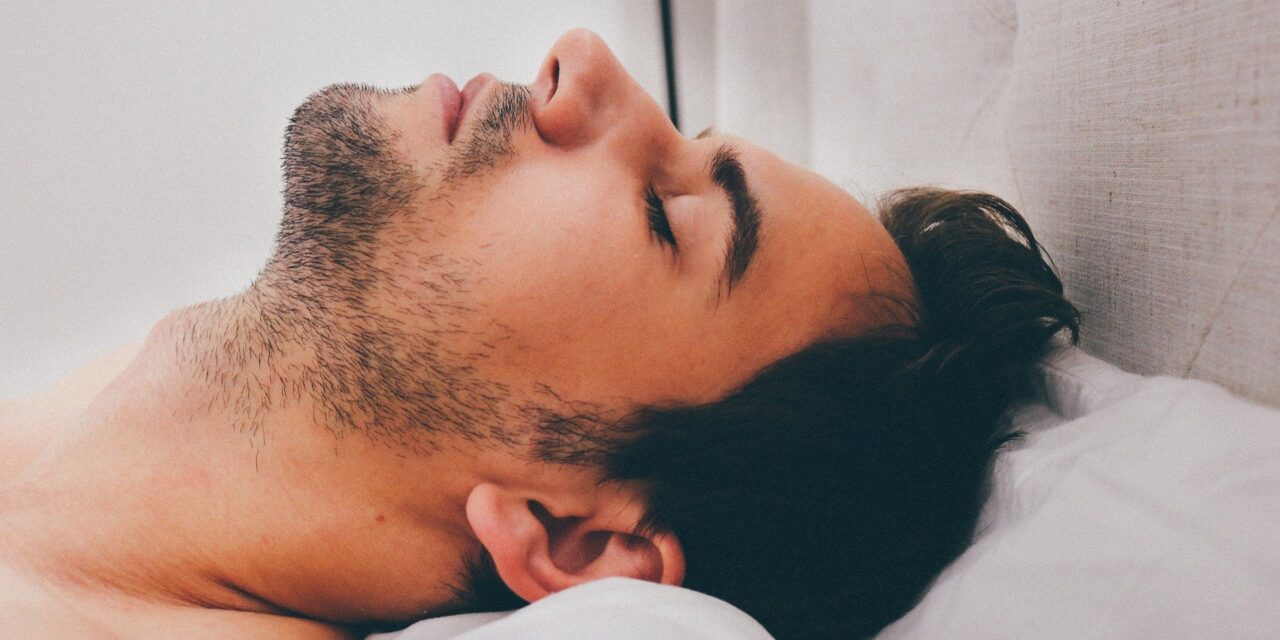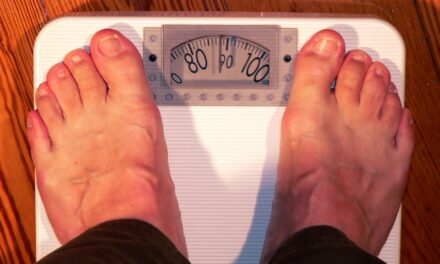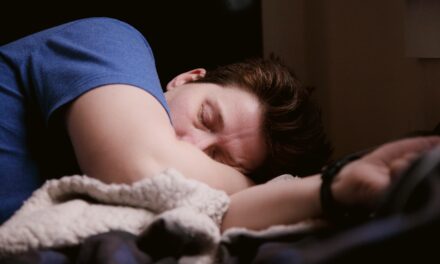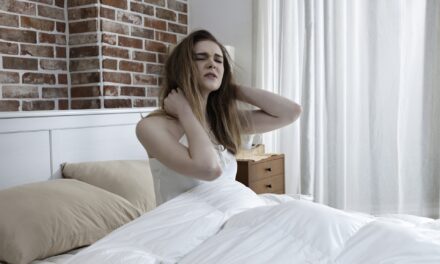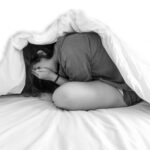Sleep Apnonea is a serious condition that can lead to many other problems if it is left untreated. This is why it is so important to get a diagnosis if you think that you might have sleep apnoea.
If you have been experiencing disturbed sleep, or you snore a lot, then you might be wondering what the warning signs of sleep apnoea are, so you can find out if you have any of the other symptoms.
In this article, we are going to tell you everything that you need to know about sleep apnoea, so you can better understand the condition. It is also always helpful to be aware of the symptoms if you think that you might have sleep apnoea, so you can either rule it out or go and see your GP.
What to expect from our article
What is Sleep Apnoea?
Sleep apnoea is a sleep disorder that causes your breathing to continuously stop and start when you are asleep. If you are someone that snores loudly and feels tired, even after a full night of sleep, then it is possible that you have sleep apnoea. The main types of sleep apnoea are obstructive sleep apnoea, complex sleep apnoea, and central sleep apnoea.
Obstructive Sleep Apnoea
Obstructive sleep apnoea is the most common type, and it happens when your airways become completely or partially blocked repeatedly during sleep. This is usually a result of the soft tissue in your throat collapsing.
When this happens, your diaphragm and chest muscles will need to work harder than normal to open your airways. You might start to breathe with loud gasps or jerk your body, and this can affect your sleep, lower the flow of oxygen to your vital organs, and lead to abnormal heart rhythms.
Central Sleep Apnoea
Central sleep apnoea isn’t a result of your airway becoming blocked. Instead, it is when your brain fails to tell your muscles to breathe due to issues in your respiratory control centre. It is often related to the function of your central nervous system, and it can occur more often in people with neuromuscular disease, people that have had a stroke, or people with heart failure. It can also be related to heart, kidney, or lung disease.
Complex Sleep Apnoea
Complex sleep apnoea is a condition that occurs when you have both obstructive sleep apnoea and central sleep apnoea.
What Are the Warning Signs of Sleep Apnoea?
The most common warning signs of sleep apnoea are:
- Stop and start breathing
- Making gasping, snorting, or choking noises in your sleep
- Waking up a lot throughout the night
- Loud snoring
It is also possible to experience the following throughout the day:
- Feeling very tired, even though you got a full night of sleep
- Finding it really hard to concentrate
- Mood swings
- A headache when you first wake up in the morning
It can be quite difficult to tell if you have sleep apnoea, especially if you sleep alone. It might be helpful to ask someone to stay with you while you sleep, so they can check for the symptoms when you are not able to. Alternatively, you could record yourself while you sleep.
Sleep apnoea is something that can become dangerous if it is left undiagnosed and untreated. You should go to see your GP if you think that you might have sleep apnoea, but especially if:
- Your breathing is stopping and starting while you are asleep
- You are making gasping, snorting, or choking noises while you sleep
- You constantly feel tired throughout the day
What Causes Sleep Apnoea?
Now that you know about the most common warning signs and symptoms of sleep apnoea, it can be helpful to learn more about what causes it, or could potentially be causing it. While there is no one thing that causes sleep apnoea, it has been linked to:
- Obesity
- Having a larger neck
- Getting older, even though children and young adults can still get it
- Smoking and drinking alcohol
- Having larger tonsils or adenoids
- Sleeping on your back
How Can You Be Tested For Sleep Apnoea?
One of the first things that can be helpful for finding out if you have sleep apnoea is your family history. Your doctor will most likely first look at your signs and symptoms based on the information that you have given them, and they will also take a look at your family history to find out if anyone in your family has been diagnosed with sleep apnoea or another sleep disorder. Looking at your family history will also help your doctor to find out if you have a higher risk of developing the condition.
It is also possible that your doctor will perform a physical exam on you to look for signs of other conditions that can put you at a higher risk for developing sleep apnoea. Some things that may increase your risk for sleep apnoea are obesity, narrowing of the upper airways, larger tonsils, or a larger neck circumference.
They may even look at the size and structure of your jaw, as well as the size and position of your tongue. Sometimes, your doctor will check your lungs, heart, and neurological systems to see if you have any common problems that are often related to sleep apnoea.
If your GP thinks that you might have sleep apnoea, then they might refer you to a specialist sleep clinic for further tests. At the sleep clinic, you are likely to be given devices that check for signs of sleep apnoea. This could involve things that are monitoring your breathing and your heartbeat while you are asleep.
You will be asked to wear these overnight, and this will help your doctors to check for sleep apnoea. This is sometimes something that you can do at home, but you might need to stay at the clinic overnight in some cases. The tests can help to show if you have sleep apnoea, and if you do, how severe it is. This will be based on how often your breathing stops while you sleep.
Some of the tests that are involved in a sleep study are those that:
- Identify any events during your sleep that are related to sleep apnoea
- Find low or high levels of activity in the muscles that control your breathing
- Examine blood oxygen levels while you are asleep
- Watch both your heart and brain activity while you are resting
Is There Treatment for Sleep Apnoea?
Sleep apnoea is not always something that will require treatment, as it can be mild in some cases. Although, people that have more severe sleep apnoea may require treatment. Many people that have sleep apnoea will need to use a device that is called a CPAP machine, which is something that you will be given for free on the NHS if you need it.
CPAP Machine
For those that don’t already know, a CPAP (Continuous Positive Airway Pressure) machine will gently pump air into a mask that you wear over your mouth or nose when you are sleeping. It can help to improve your breathing while you sleep by stopping your airways from becoming too narrow. It can also improve the overall quality of your sleep and make you feel less tired.
CPAP can also help to reduce the risk of problems that are linked to sleep apnoea, like high blood pressure. Using a CPAP machine might feel a bit strange or awkward at first, but you should try to stick to it, as it works the best when you use it every night.
Other Sleep Apnoea Treatments
Some of the less common treatments for sleep apnoea can include surgery to help with your breathing, like removing large tonsils, and a gum shield-like device that will hold your airways open while you sleep. Although, these treatments may not work as well as a CPAP machine.
What Can I Do to Help With Sleep Apnoea?
If you have been diagnosed with sleep apnoea, then there are some things that you can do to help. If your sleep apnoea is mild, then you might only need to do the following to improve your symptoms.
Firstly, if you are overweight or obese, then losing weight can often be a big help. You can also try to sleep on your side instead of your back, and there are products that you can purchase to help you to do this.
You should also avoid smoking altogether and try to avoid drinking too much alcohol, especially before you go to sleep. You should also never take any sleeping pills unless they have been recommended by a doctor, as they can make your sleep apnoea worse.
Can Sleep Apnoea Cause Other Problems?
Yes, if it has been left undiagnosed or untreated, sleep apnoea can lead to other problems in the future, like:
- High blood pressure
- Increased chance of stroke
- Depression or mood changes
- Finding it difficult to concentrate at school or at work
- A higher chance of having a serious accident that is caused by tiredness, like a car accident

